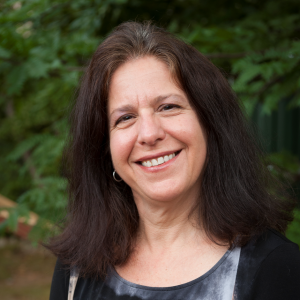

FWA: How did you start writing speculative fiction? Was there a particular aspect that attracted you or a combination of factors that drew you into the field?
J.S.: I started writing speculative fiction very young, then took a break in my twenties and wrote poetry, contemporary, experimental, crime and comics. And now I’m back to speculative. Being raised in the country drew me into the world of dark shadow and tall trees, of possibilities hiding from the light. We lived in a tiny remote town in rural upstate New York with lots of history, plenty of ghosts and urban myths. My friends and I would tell ghost stories at sleepovers, hold seances and sleep under the stars. It was a magical and memorable. I was always attracted to the possibilities of speculative fiction, the idea that it wasn’t bound by reality in order to describe the truth. I was also attracted to all the different ways that speculative fiction can do its job—it can be subtle or obvious. It can be a slight skewing of reality or a deep dive into farthest realms of the imagination.
KW: I loved speculative fiction from the moment I discovered it on my father’s bookshelves. He had anthologies and novels, all with exciting covers depicting unfamiliar things. I devoured Kurt Vonnegut, Isaac Asimov, Joanna Russ, excited by the possibilities these stories presented.
I wrote my first real short story at 14, inspired by a piece of equipment in my uncle’s house. It was called an animode re-volter, and I wondered what an animode might revolt against. Writing a speculative fiction story meant that anything was possible; I could explore any avenue I wanted. I love allowing my imagination to run wild, to have a vision and then capture it on the page.
FWA: What do you find are the most challenging aspects of writing speculative fiction? How will you tackle these in your course?
J.S. and KW: The most challenging aspects of writing speculative fiction are the same as writing any fiction – doing it well. Writing believable characters, worlds, plots… This is all the stuff that is hard and needs to be practiced just as you would in any other mode. What we’ll do in the course is structure the program around the application of basic skills – character deepening, description, scene-building, dialogue – specifically to the speculative fiction context. For example there is a tendency in speculative fiction to have the characters use dialogue to deliver information to the reader rather than to deepen tension or escalate action. But elves and vampires are people too! We’ll look at workarounds for non-human character building among other stumbling blocks to help the students feel as confident in their practice, as they are motivated by their wonderful ideas.
Another challenge is not allowing the ‘idea’ of the piece to be all the piece is about. So if you have a great concept, you need to explore that from a number of angles to ensure you are telling an actual story, not just telling the reader what your concept is. We’ll workshop this in the course, layering in enough character, setting and plot work. This will all help with another issue in Speculative Fiction: making the story and the actions of the characters believable. Regardless of the setting, our characters need to make sense. We’ll work together to create characters the reader will relate to.
FWA: Which one or two speculative fiction works would you particularly recommend that aspiring writers of speculative fiction read and why?
J.S.: One or two! Oh my. This is so difficult to narrow down, because it’s all so subjective, and there are fantasy students who stay away from horror, and science fiction students who never read fantasy and so on. But I guess the books I recommend most often in my classes are John Gardner’s Grendel (for character) and Ursula Le Guin’s The Dispossessed (for everything), and Emily St John Mandel’s Station Eleven (for science fiction with heart). But honestly, that doesn’t even touch the surface. Chen Quifan’s short story The Year of the Rat is essential reading for any student of speculative fiction for structure and emotion. I always recommend that students try and get the latest spec fic anthologies in their areas of interest. Ellen Datlow, Paula Guran, Mark Morris, Lui and others do a great job of curating the work of some of today’s top writers in the field.
KW: I was obsessed by the Doris Lessing series Canopus in Argus, as well as her other works. She gave me confidence to write SF. Suzy McKee Charnas’ Holdfast series is powerful and run through with strong characters, and I always go back to Patricia Highsmith for suspense and horror. As Jen says, it is impossible to choose just one or two!
FWA: Your course includes rolling feedback on student work. Should students come to the class with a project already in development, or can they develop something from scratch as the weeks progress?
J.S. and KW: Either or, or both! We do have students who come with a work in progress but find they want to take a break from it to start something new, and others who think they’ll be starting from scratch, but find themselves dusting off work they started years ago, with renewed confidence in it, and themselves!
Sometimes talking about and working on one story will spark the idea for another. It’s very tempting to jump ship and move onto another story, and we will work on strategies for managing that motivational shift.
FWA: What is the main thing you hope participants in Writing Speculative Fiction will take away from the course?
J.S.: Inspiration, gained from being with like-minded creatives in a safe space, plus, practical skills that they can apply with confidence to complete a work of speculative fiction that they can be proud of.
KW: A peer group going forward. Some basic tools for writing, and some deeper tools for finding their own voices and ensuring that voice is powerful on the page.
Writing Speculative Fiction
with Kaaron Warren and J.S. Breukelaar
ONLINE
6 March – 3 April 2024